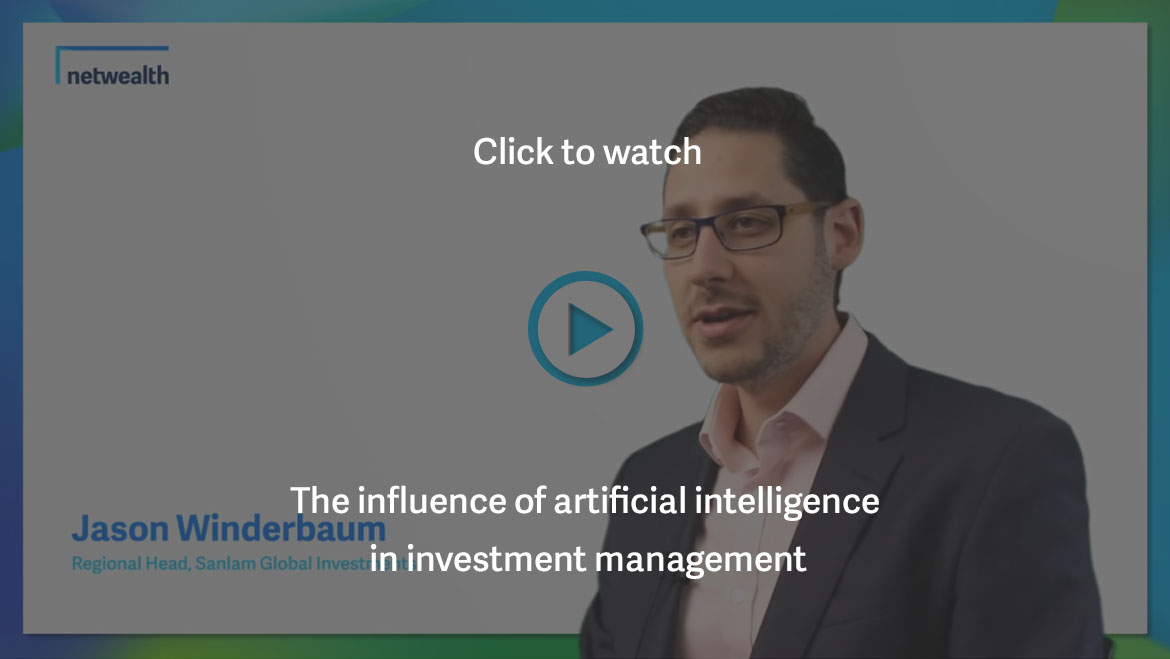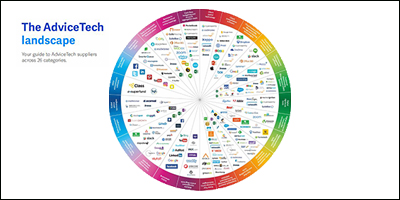Get a better grip on what artificial intelligence (AI) and the impact it could have on investing, advice and other industries. Jason Winderbaum, regional head at Sanlam Global Investments explains.
Read the full video transcript
Jason Winderbaum: I work for a South African publicly listed company called Sanlam. It's a diversified financial services company. We focus on identifying problems and challenges faced by investment professionals and their clients, and then we supply them with innovative solutions that are transparent, cost-effective and liquid. To give you some examples of that, we have historically our P2 strategies, our managed risk funds and our latest innovation which we're hoping to launch in Australia which will be centered on artificial intelligence.
How would you describe artificial intelligence?
JW: If I was going to simplify it as best I could, I'd say that AI is really the science behind trying to create thinking machines where we're actually trying to give non-living organisms brains. Practically what that is is taking a bunch of really smart science and tech guys that are building hardware and software, either within boundaries and limitations or no constraints whatsoever, and then giving those machines the ability to learn, adapt and evolve autonomously without any human involvement.
What is the difference between artificial intelligence, a quant manager and an algorithm?
JW: Primary differences around artificial intelligence capabilities versus algorithms or quant managers is mainly in the execution of AI. You have fixed algorithms within a quant style environment, and typically what you've seen in those spaces are a bunch of PhDs that look for patterns and trends within data. They then fit that data or find an opportunity and they trade that. It's a very regimented rules-based environment. What you find with artificial intelligence is that it can learn and adapt from its situations, which is quite different to a fixed algorithm. That process of actually learning from its mistakes and what it did well kind of makes it somewhat different.
Hear more from Jason Winderbaum
How is artificial intelligence being used in the wealth industry?
JW: There are a number of areas where AI is being deployed in the wealth management industry. Not many in the sphere that we're working in, which is really the creation of investment recommendation engines, but you do seeing it being deployed mainly through things like optimisation, which I described earlier, around things like rebalancing portfolios, the automation of tasks that used to be fulfilled by analysts. So as an example, collating regulatory filings, company reports and financial statements.
Where will AI head in the next 5 to 10 years?
JW: In the next 5 to 10 years, there's a lot of talk about AI becoming general AI, meaning as intelligent or surpassing human intelligence. I don't see that happening, potentially not even in our lifetimes. We don't even understand cognition to its fullest potential, and that is really the starting point of creating general AI. I think we'll start to see, maybe not the next five years, maybe the next 10 plus years, autonomous driving will become a thing. Probably, our grandchildren will be banned from having driving licenses. I think things like global logistics will be ghost logistics, where rail and trucks, even shipping, will all be automated. You may have a skeleton staff on board.
Learn more about Artificial Intelligence in advice
Read Why advice businesses shouldn’t be afraid of AI and download the 2018 AdviceTech research report.
Recommending reading
AdviceTech Report
A comprehensive view of AdviceTech with special reports, articles, video and podcast interviews.
Glossary of AdviceTech
View a summary of 25 adviser technologies, highlighting key tech providers and benefits to advisers.
Lessons from the US
Find out which US trends in tech and innovation are set to impact the Australian advice industry.
AdviceTech landscape
Get your copy of the logo map created by Netwealth, as featured in the 2020 AdviceTech research report.





